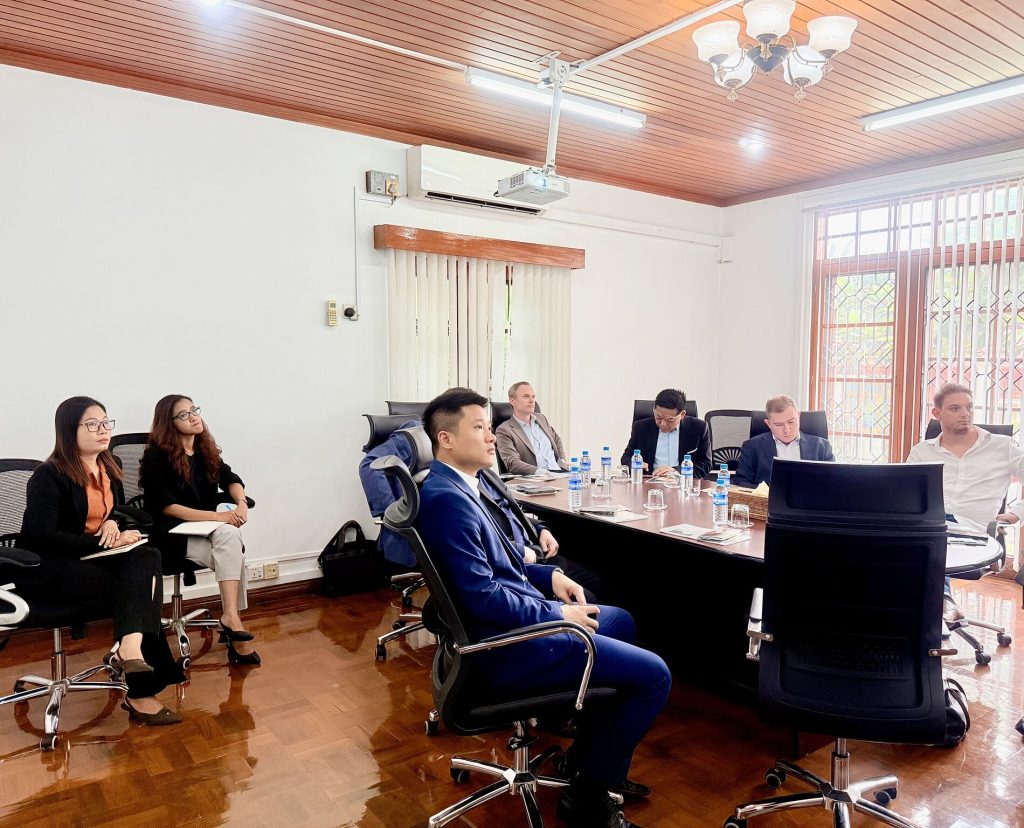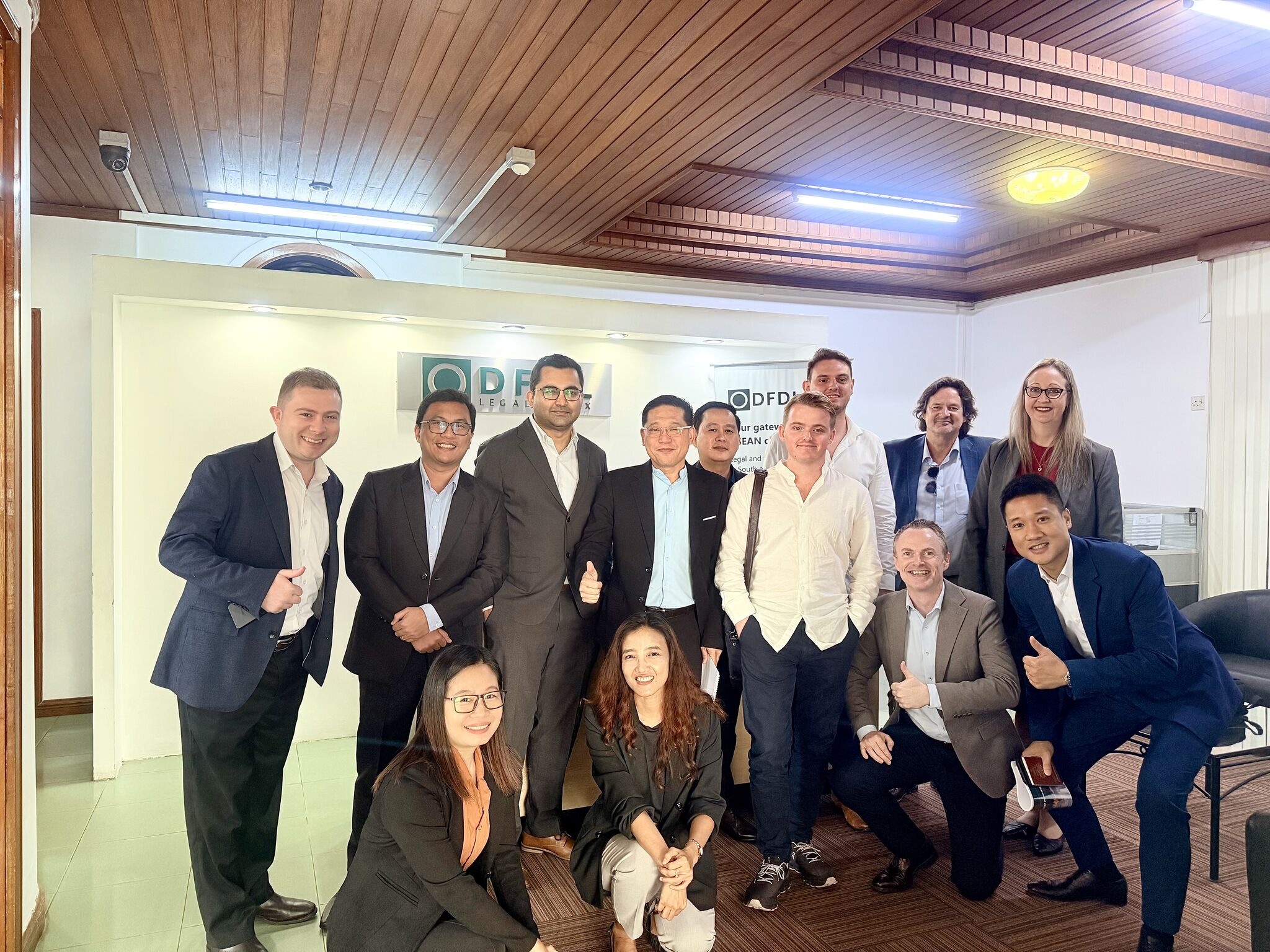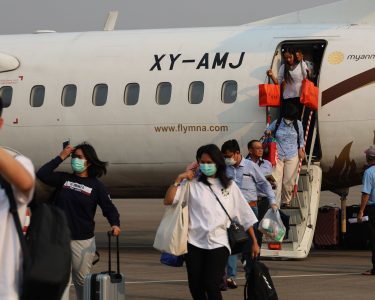Myanmar Investment Review
Presented to a Cambodian business delegation on June 5 in Yangon, this briefing by DFDL Myanmar Senior Legal Adviser Surath Bhattacharjee and DFDL Tax Partner for Myanmar and Cambodia, Diberjohn Balinas outlined key legal and tax frameworks for foreign investment, including insights into distressed M&A opportunities.
As Myanmar continues to navigate post-coup economic uncertainty, DFDL Myanmar has identified strategic openings for foreign investors, especially those looking to enter through distressed asset acquisitions. Despite a subdued economic outlook—with the World Bank projecting just 1% growth for FY2024/25—the country’s geographic position and tax incentives are helping restore cautious investor interest.
Legal Structures and Entry Options for Foreign Investors
DFDL Myanmar outlined that the Myanmar Companies Law (2017) allows 100% foreign ownership in many sectors, with incorporation now possible within 3–5 working days via the MyCO online platform. Investors can choose to set up as wholly foreign-owned entities or joint ventures, depending on sector-specific rules.
Myanmar also recognizes “overseas corporations” and allows companies with up to 35% foreign ownership to retain local company status—opening doors for hybrid ownership models. There is no minimum capital requirement, but each company must appoint at least one Myanmar-resident director.

Tax Incentives and SEZ Benefits
The Myanmar Investment Commission (MIC) and Special Economic Zones (SEZs) provide generous tax incentives:
- Income tax holidays of 3 to 7 years depending on location
- Import duty exemptions for machinery and inputs
- Long-term land leases of up to 75 years
- Protection against expropriation and discriminatory treatment
SEZ-based investors may also benefit from extended commercial tax exemptions and streamlined access to infrastructure and logistics networks.
The corporate income tax rate is 22%, while commercial tax is 5%. Notably, dividend payments to non-residents are exempt from withholding tax. However, services, royalties, and interest paid to foreign entities are subject to withholding taxes between 2.5% and 15%.
Distressed M&A: A Window of Opportunity
DFDL Myanmar flagged a notable uptick in interest from investors pursuing distressed M&A transactions—driven by discounted valuations and the withdrawal of several international brands post-2021. Sectors most impacted include banking, retail, manufacturing, and energy, where regulatory uncertainty and capital controls have disrupted operations.
“Distressed assets in Myanmar currently offer low entry valuations, and the potential for turnaround strategies is high,” said Surath Bhattacharjee, Senior Legal Adviser at DFDL Myanmar. “Investors with a long-term vision and the ability to implement restructuring can find strategic opportunities in this market.”
Bhattacharjee added that while foreign exchange restrictions and regulatory approvals remain challenging, proper due diligence and escrow arrangements can help navigate these hurdles.
Labour, Licensing, and Local Considerations
Labour laws mandate formal contracts using government templates within 30 days of hiring. The current minimum wage is MMK 6,800 per day, and employers with five or more staff must register for social security contributions. Foreign hires require permits and may be subject to sector-specific restrictions.
In real estate, foreigners cannot directly own land but can lease it long-term under MIC permits or through joint ventures. Condominium ownership is permitted under certain conditions.
Mar Mar Aung, another Senior Adviser at DFDL Myanmar, stressed the importance of working with local legal teams to handle these nuanced legal requirements, particularly around property, environmental approvals, and cross-border finance.

Strategic Outlook: Entry Points with Risk and Reward
Myanmar offers long-term strategic positioning for investors seeking a presence in Southeast Asia’s frontier markets. For those willing to manage political risk, regulatory friction, and currency controls, the rewards may come in the form of first-mover advantages, market recovery gains, and significant asset appreciation over time.
However, DFDL Myanmar strongly advises foreign entrants to structure their investments carefully and maintain close compliance with shifting rules and approvals.
Interested in entering Myanmar’s market or exploring distressed M&A opportunities?
DFDL Myanmar is ready to assist with legal, tax, and regulatory advisory services.
📩 Contact Surath Bhattacharjee at: surath@dfdl.com
🌐 Learn more at: www.dfdl.com





